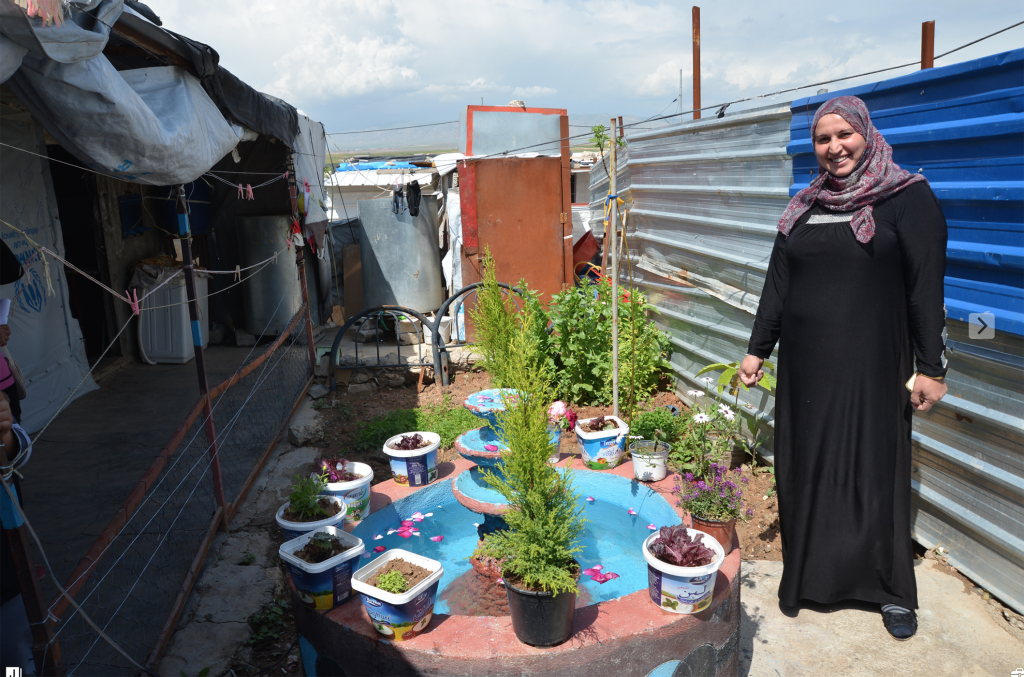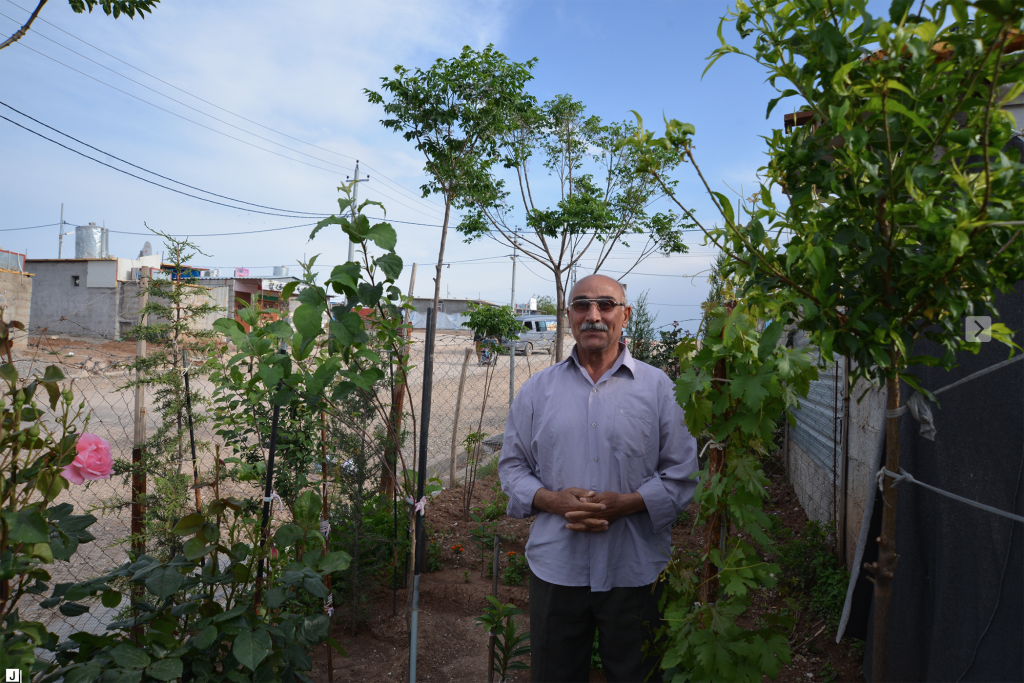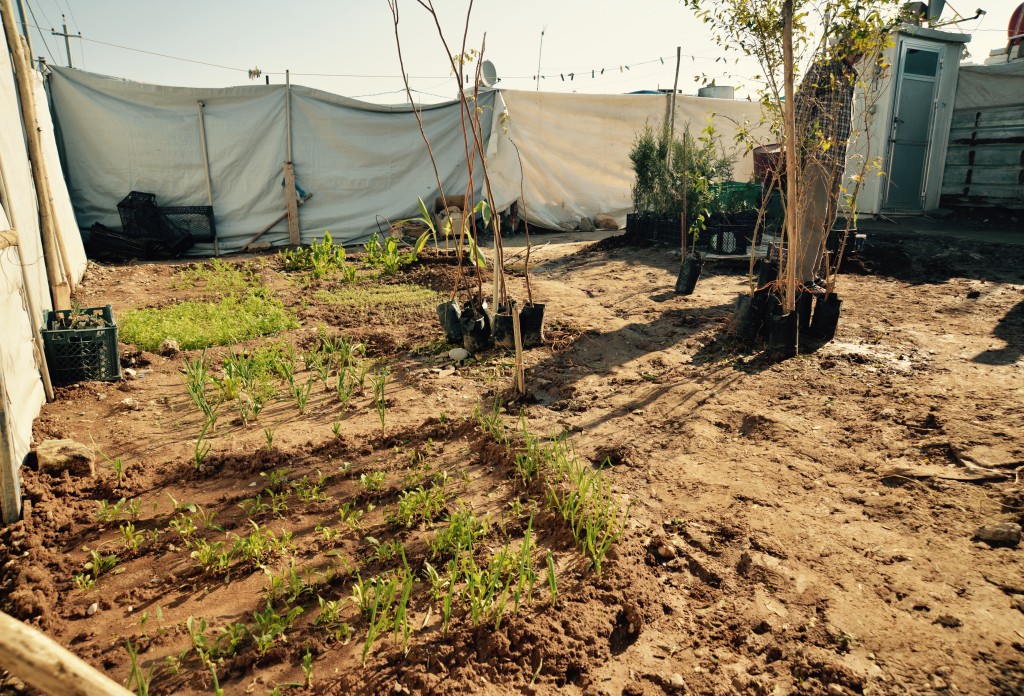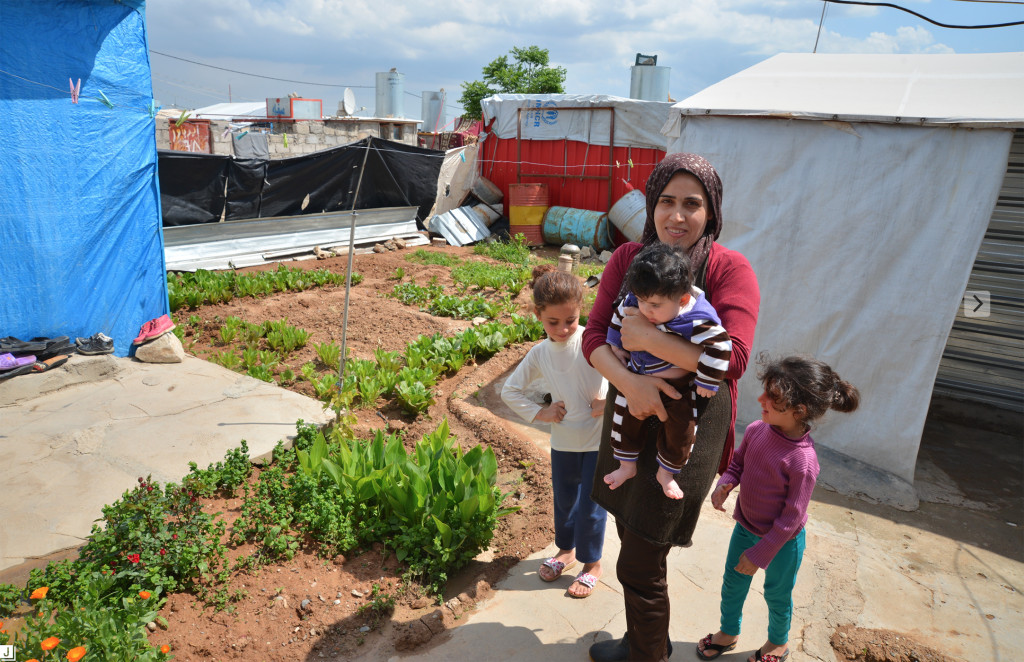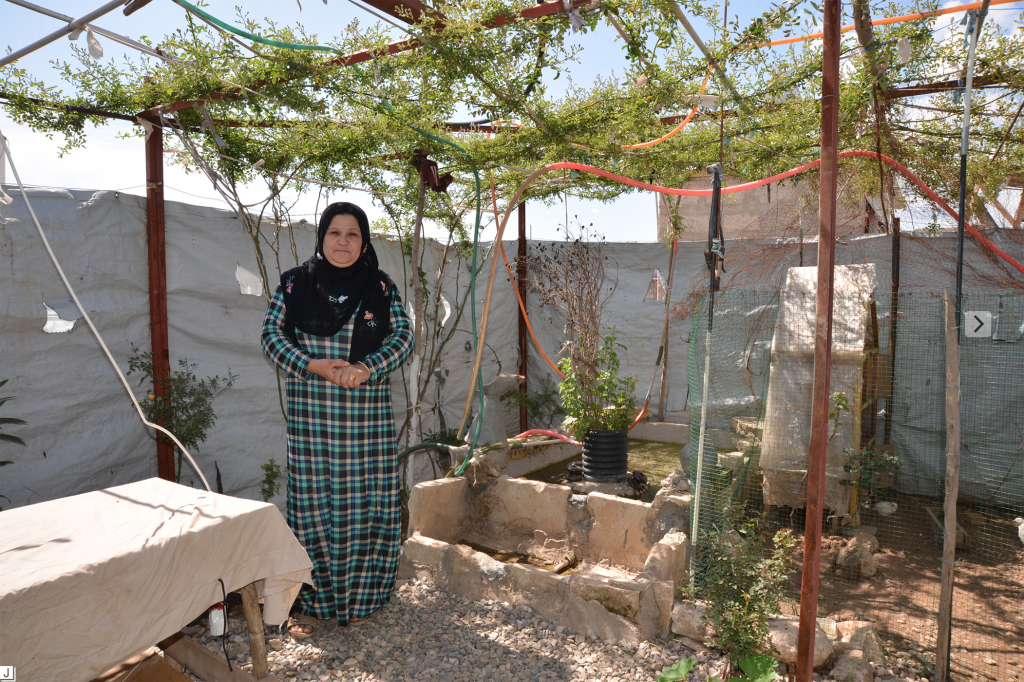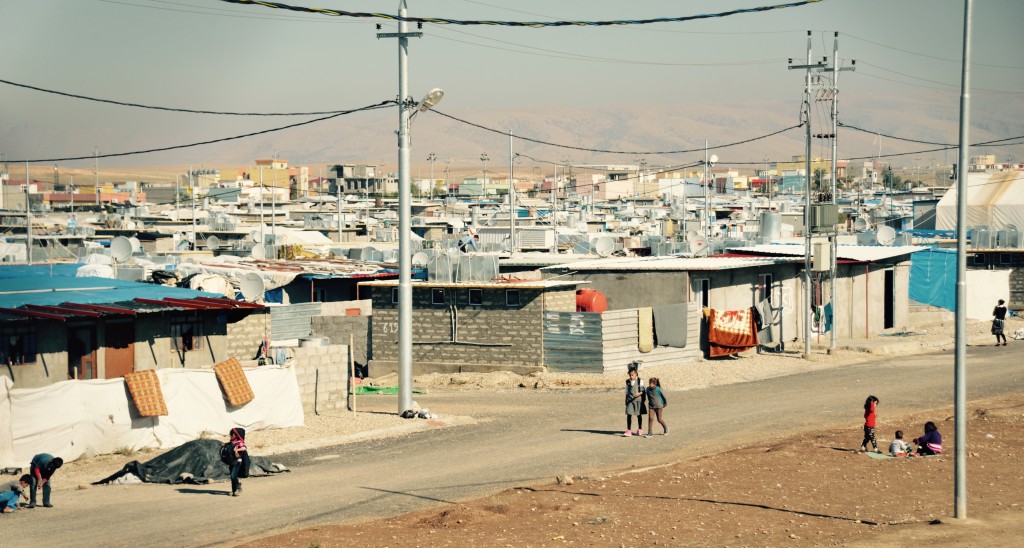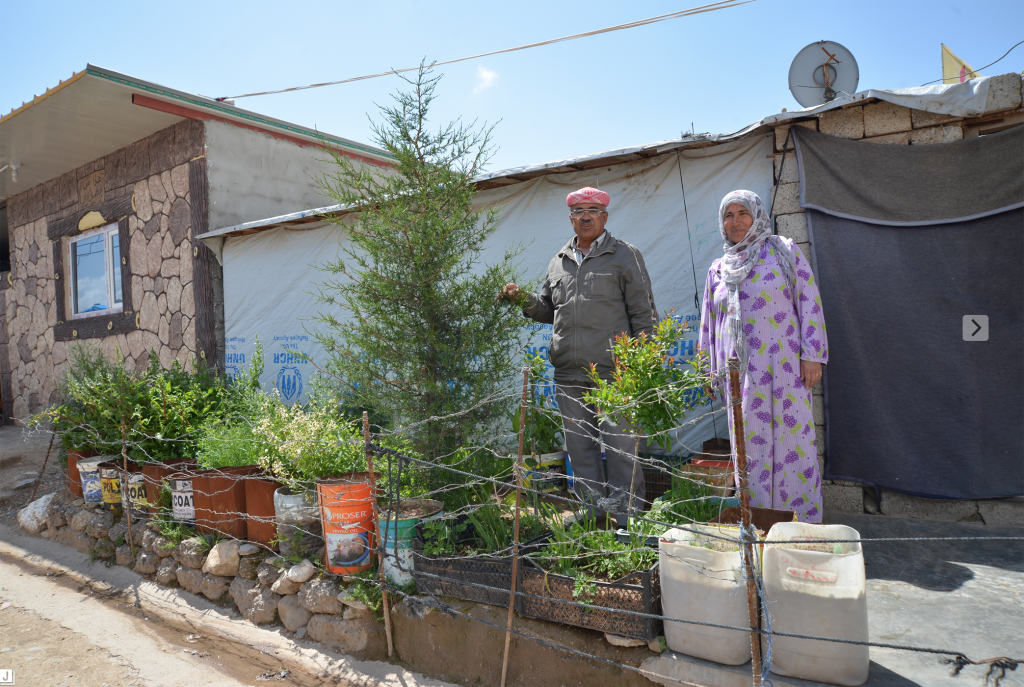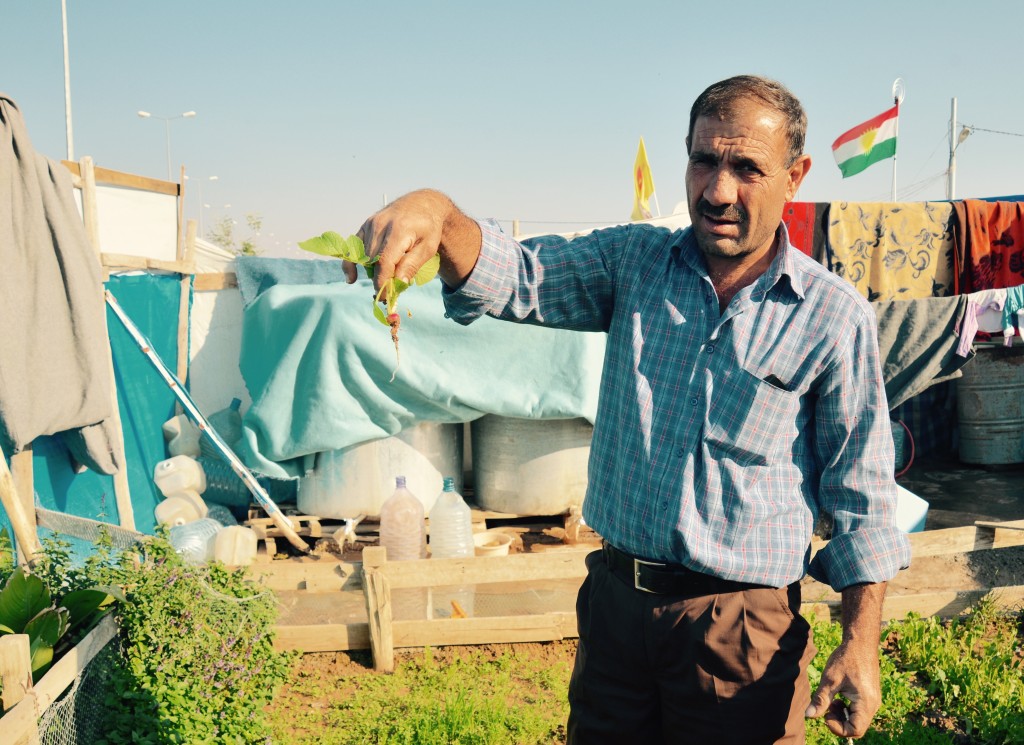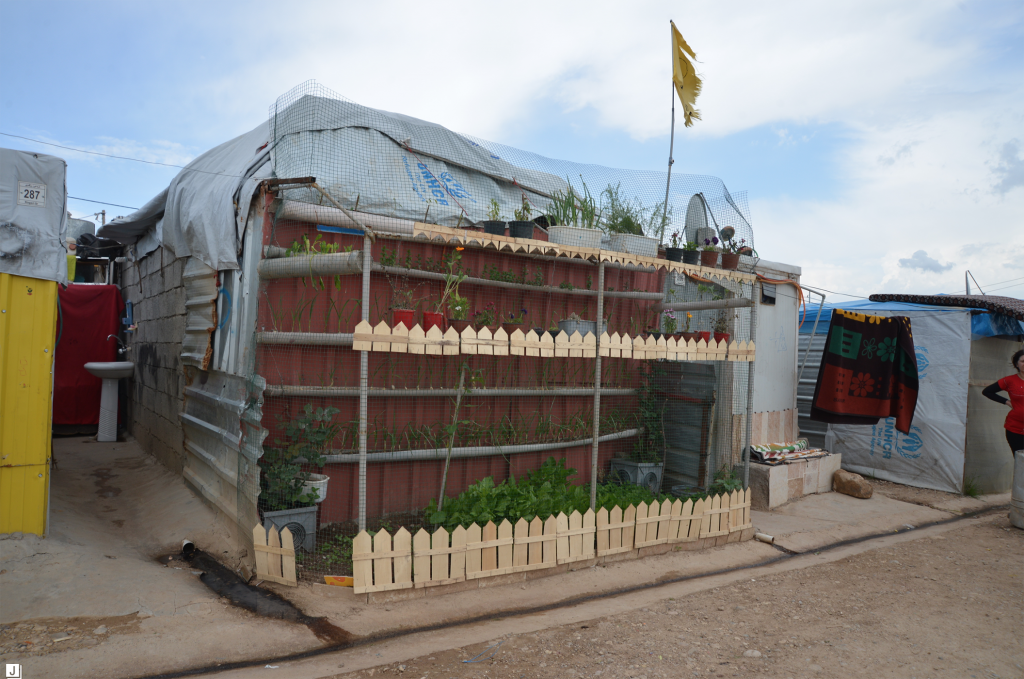Global
The Lemon Tree Trust was established to help refugees develop food and ornamental gardens in the Middle East (ME). An international organization, Lemon Tree Trust is currently implementing projects in Jordan and Iraq. In both these countries, the program is supported by Citizen D in the U.S., the British-registered NGO the Human Relief Foundation (HRF), and the Centre for Agroecology, Water and Resilience, Coventry University in the UK.
Gardens bring dignity within the often harsh conditions of refugee life, help green landscapes, and offer the chance for improved food sovereignty. The opportunity to plant a garden and grow food and flowers offers hope and remembrance that life can and will improve. The trust works efficiently by employing local refugees and host country experts to help deliver plants, knowledge, and support.
Greening camps, including using market gardens and growing in greenhouses, brings dignity and self-reliance to refugees while also offering a solution to develop refugee settlements along more sustainable lines. Examples include mitigating environmental hazards such as stagnant wastewater or using organic waste for compost. Greening camps contributes not only to everyday food security, but also to the longer-term environmental sustainability of refugee life.
At Lemon Tree Trust, we draw upon our understanding of how small scale, intensive food growing, or ‘urban agriculture,’ can promote food sovereignty, accelerate innovation, and bring dignity to the lives of refugees. The potential of vegetable gardening and other forms of agricultural production (e.g., eggs, mushrooms, medicinal herbs, aquaponics, etc.) in protracted refugee situations is being recognized in addition to the need for higher calorie intake (The Sphere Project 2011).
Furthermore, our research shows that when refugees become involved in creative and productive activities, dignity, hope, and self-respect is regained and overall well-being is enhanced.
We strive to develop community gardening activities that help increase self-reliance, allow people to grow their preferred crops and varieties, and improve their skills and knowledge in the process. Additionally, this may reduce operational costs for humanitarian agencies and potentially contribute to restoring the social fabric of disaster-affected communities.
Urban agriculture can play multiple roles in different phases of the disaster management cycle. In the pre-disaster phase, urban agriculture can, for example, be used as a land management tool in disaster risk reduction programs, while in the post-disaster phase the aim of urban agriculture is the swift re-establishment of primary food production systems that are more resilient than previous agricultural practices. Instructions for developing and protecting primary food production are given in a number of guidelines, which also contain planning and design recommendations for allocating small plots of land for use as kitchen gardens.
The Lemon Tree Trust project is facilitated in Iraq and Jordan by Dr. Andrew Adam-Bradford, an Environmental Geographer, and in the UK by Dr. Mikey Tomkins, Artist and Urban Food Specialist.
To get involved, offer support, or provide additional much-needed funding, please email us.

